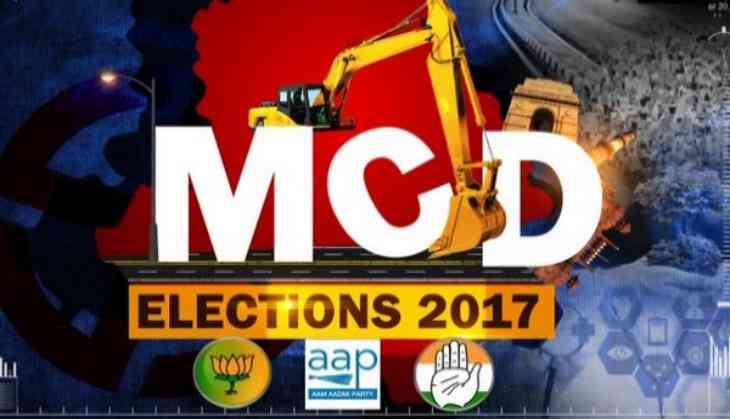MCD & UP polls show secular parties can't survive without Muslim pockets

Even as the Bharatiya Janata Party swept the Municipal Corporation of Delhi (MCD) elections, its five Muslim candidates drew a blank.
Initial leads suggested that the BJP was doing well in constituencies like Jama Masjid and Sita Ram Bazar in Old Delhi and BJP supporters began showcasing that it had made inroads into the community. But by the time, the final tally came in, it was clear that Muslims had, by and large, rejected BJP.
In all 14 Muslim candidates were elected to the MCD: 7 from Aam Aadmi Party, 6 from Congress and one from Bahujan Samaj Party. Six out of the 14 Muslim councillors are women.
The overall representation of Muslims in the MCD marginally fell from the tally of 15 in 2012. But this is not the lowest tally. In the 2007 elections, when BJP won 164 seats, it was 11. However one of these happened to be a BJP candidate - Mohammad Imran from Qasab Pura.
The MCD elections reflected what seems to have become a nationwide phenomenon - the rejection of BJP by Muslim voters and the disproportionate reliance of 'secular' parties on Muslim dominated areas.
Only about 5% of the councillors in the three MCDs put together are Muslims. But 20% of Congress councillors, 15% of AAP councillors and one out of the three BSP councillors are Muslims.
This is not very different from what was witnessed in the Uttar Pradesh Assembly elections in which around 35% of SP MLAs, 21% of BSP MLAs and 33% of Congress MLAs are Muslims. BJP didn't field a single Muslim candidate.
These numbers indicate that under the Narendra Modi-Amit Shah duo, the BJP is garnering a substantial chunk of Hindu votes, leaving the 'secular' parties critically dependent on Muslim votes for survival. While BJP is consolidating Hindu votes, Muslims seem to be preferring 'secular' parties over 'Muslim-oriented' parties which can be seen from the below par performance of the All India Majlis-e-Ittehadul Muslimeen in UP, Bihar and now Delhi and of the AIUDF in Assam. Only the Indian Union Muslim League held its ground in the Kerala Assembly elections last year.
Muslims seem to be working on an "anybody but BJP" motto. In the Mumbai civic elections earlier this year, some Muslims chose to vote for the Shiv Sena as it was the main anti-BJP party contesting. Two Muslim corporators got elected on a Sena ticket.
On the other hand, there is a complete alienation of Muslim voters from BJP. The BJP has become brazen about its strategy of not soliciting Muslim votes. Union Minister Ravi Shankar Prasad recently said that the BJP has "given Muslims sanctity even though they don't vote for BJP".
Modi and Shah appear to be extending the model they followed in Gujarat - of consolidating all voters except Muslims.
Results don't reflect Muslims' participation
The turnout in Muslim dominated areas was more than average in the UP elections as well as the MCD polls.
The degree of political competition is also higher in Muslim dominated areas. For instance, the Okhla ward witnessed a close battle between the AAP, Congress, RJD and BJP with independents, AIMIM and other small parties also making a mark.
But despite a higher degree of participation and greater politicisation, if the eventual result doesn't reflect the community's will. This is a disturbing trend. And it may eventually lead to a disillusionment from the political process.
List of Muslim winning candidates
North (104 wards)
Mohammad Sadiq - AAP
Ballimaran
Shaheen - AAP
Quraish Nagar
Seema Tahira - Congress
Bazar Sita Ram
Aaley Mohammad Iqbal - Congress
Delhi Gate
Sultan Abad - Congress
Jama Masjid
East (64 wards)
Abdul Rehman - AAP
Chauhan Banger
Sazid - AAP
Kardam Puri
Mohammad Tahir Husain - AAP
Nehru Vihar
Sahista - AAP
Sri Ram Colony
Parveen - Congress
Mustafabad
Shakila Begum - BSP
Seelampur
South (104 wards)
Abdul Wajid Khan - AAP
Abul Fazal Enclave
Yasmin Kidwai - Congress
Daryaganj
Shoaib Danish - Congress
Zakir Nagar
First published: 27 April 2017, 11:10 IST
